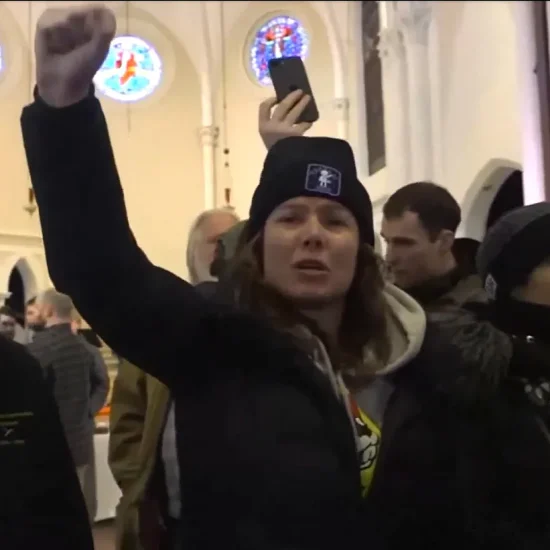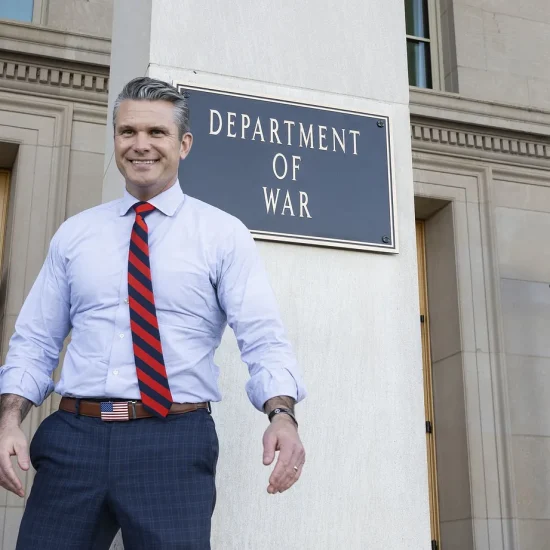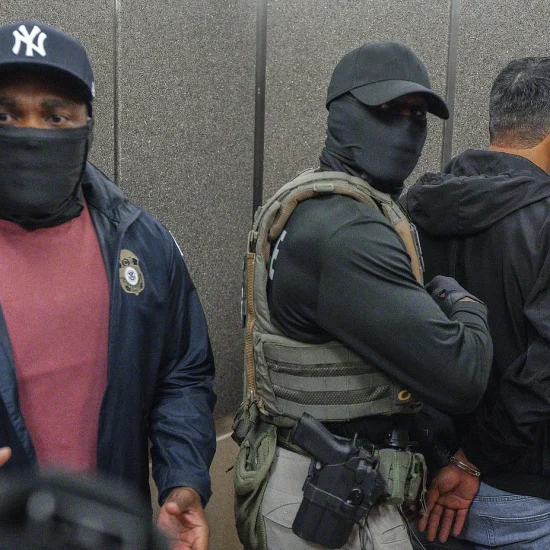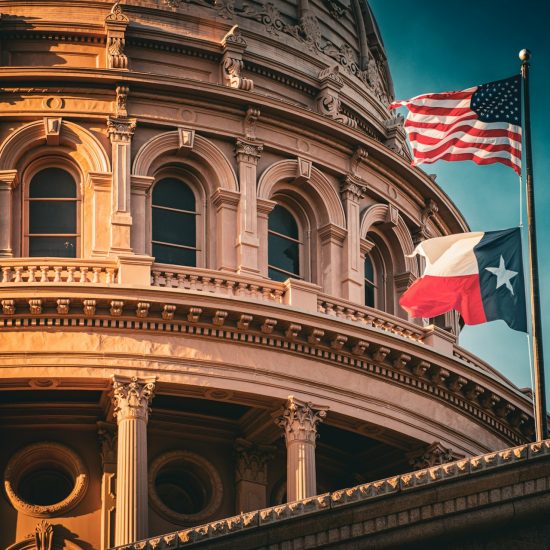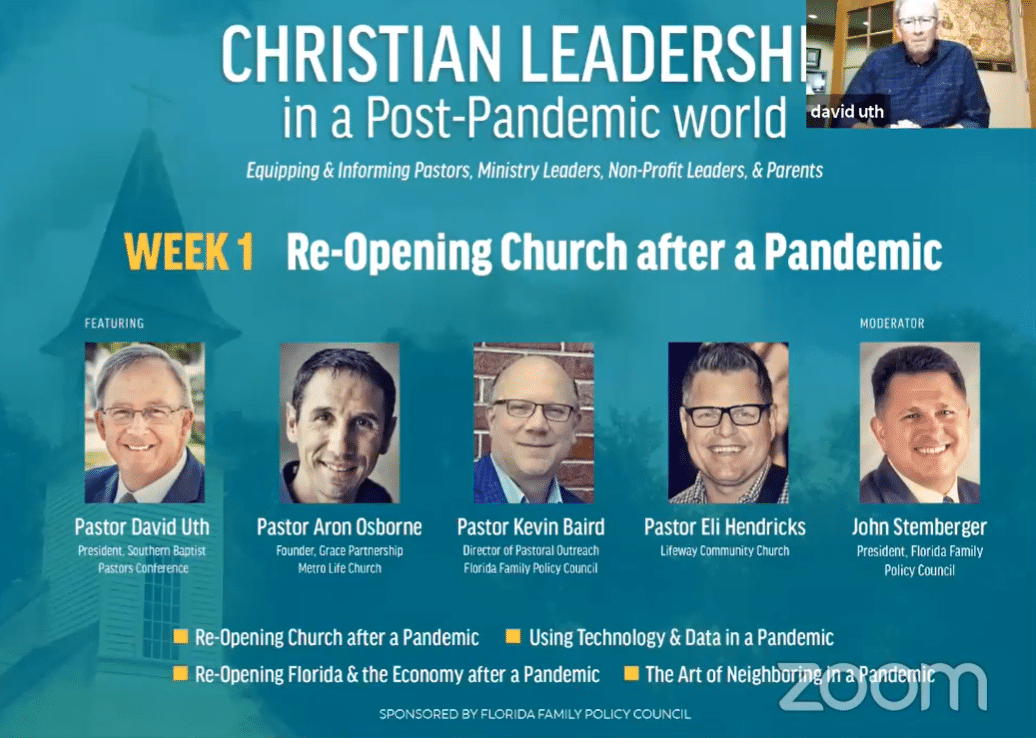
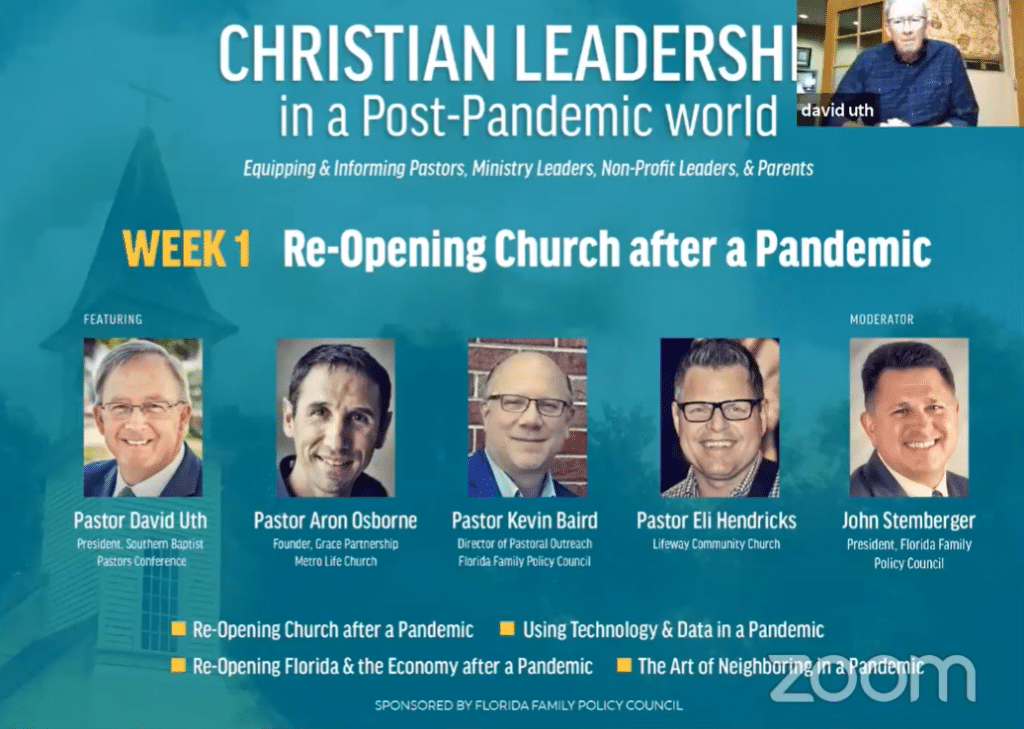
David Uth, pastor of the First Baptist Church of Orlando and president of the Southern Baptist Pastors Conference (top right), was one of the leaders of an April 30 video conference that attracted about 800 church leaders from across the country. Screengrab
TALLAHASSEE, Fla. (AP) — It’s almost unheard of to go into a Southern Baptist church and not have a plate passed for donations.
Until now.
“It took a pandemic for a Baptist church to quit passing a plate. That’s almost unthinkable. It’s close to heresy. Real close,” said David Uth, pastor of the First Baptist Church of Orlando and president of the Southern Baptist Pastors Conference on a video conference on how to reopen churches. “It’s just not going to be the same.”
The meeting was set up by the Florida Family Policy Council and had about 800 church leaders from across the country listening to the conversation about the impact of the coronavirus on religious institutions and what to do going forward. A prominent message was that a church isn’t just a building, but rather a community, so there has to be a new way of thinking about spreading God’s message and not spreading a disease.
“Everything that we’ll do, we’ll do outside,” said Eli Hendricks, the pastor at a small Tallahassee church. “I will perform baptisms. I feel like that is an instrumental time in the life of a believer.”
But he said he will ask people to wear something to cover their faces. And when it comes time for an offering, he, too, won’t pass a plate.
“We’re not going to pass the tray, because if you have dozens of people touching them, you raise the risk of that virus being passed,” he said.
Instead, pastors said they’ll set up donation stations at the front of churches, or go back to the long-handled baskets that can be extended down church aisles.
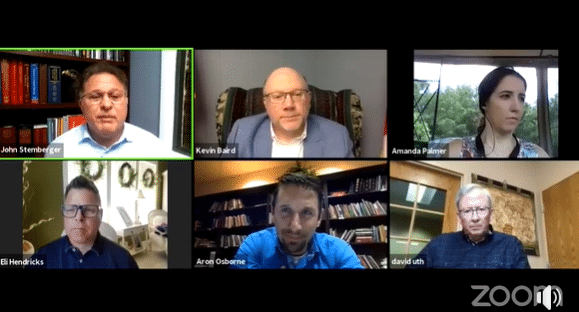
An April 30 video conference on reopening churches, set up by the Florida Family Policy Council, attracted about 800 church leaders from across the country. Screengrab.
They also talked about different ways to reach people, such as social media, the internet or even “snail mail” to deliver a message instead of encouraging large crowds to gather in the same place.
Uth said that included livestreaming a funeral that he only allowed 10 people to attend in person.
“You know what? It was a beautiful thing. It actually was incredible. I was so worried going into it that it just wasn’t going to be what it can be and should be, but it absolutely was amazing,” Uth said. “So you know what? I think we can do these things, we just have to do them a little differently.
He said that may mean not opening up churches to large groups.
“What are the essentials that God would say for the church? We developed a series called essentials, and guess what? Our building wasn’t one of them,” Uth said. “Do we have to meet to be a church? No. Do we have to have a building to be a church? No. That’s not essential.”
“The greatest church is a healthy church,” he added.
As far as getting back to normal, Uth said he would take a cue from a being larger than his church.
“When Disney opens, we’re going to open,” said Uth, who has a church with more than 5,000 members. “That sends a message to the people here, our people, that it must be OK. I think we would do well to gain wisdom from them. We don’t have to do it at the same time, but at least learn from them.”
Churches’ plans to move forward during this crisis could create new opportunities, said John Stemberger, president of the Florida Family Policy Council.
“This could be the churches’ finest hour. It really could be, if we respond with grace and respond with wisdom,” Stemberger said.

